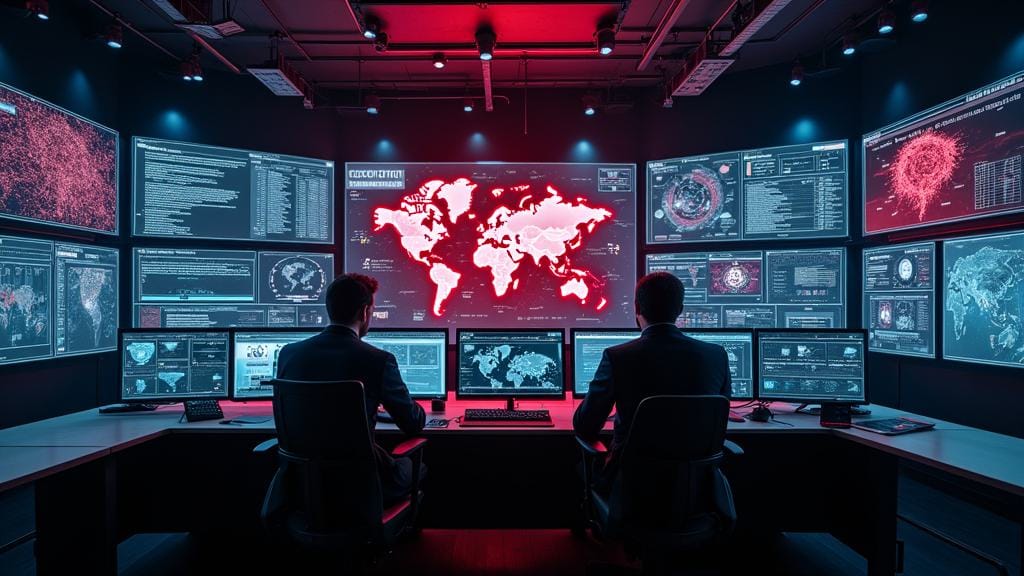Eric Schmidt warns that a U.S. AI “Manhattan Project,” akin to Cold War’s nuclear arms race, could spark global turmoil. In a policy paper co-authored with experts, he stresses the need for a cautious approach to AI development. The fear of international retaliation and destabilized global power underscores his concern. With U.S. advancements provoking potential countermeasures, a delicate balance of AI development is essential. As stakes rise, understanding these intricacies could provide valuable insights.

As the world stands on the brink of an AI revolution, Eric Schmidt, the former CEO of Google, cautions against a reckless dash toward a U.S. AI ‘Manhattan Project’. Schmidt, along with Dan Hendrycks and Alexandr Wang, co-authored a policy paper titled “Superintelligence Strategy,” urging a more cautious approach to AI development to prevent global conflict.
They’re concerned that pursuing AI dominance could spark international retaliation, mirroring Cold War tensions. The potential for an escalation, they argue, is significant, as rivals like China might respond with cyberattacks if the U.S. gains superintelligence first.
The paper draws parallels between AI development and the nuclear arms race, warning against a rush to develop artificial general intelligence (AGI). Such an aggressive pursuit could destabilize the global balance of power, just as nuclear weapons did.
The authors propose a defensive strategy, suggesting the U.S. should consider sabotaging rival AI projects to maintain stability. This concept of Mutual Assured AI Malfunction (MAIM) highlights the dangers of an AI race, where rapid advancements could provoke hostile countermeasures. The rapid AI advancements could disrupt the global balance of power, leading to unforeseen consequences and escalating international tensions.
U.S. Secretary of Energy Chris Wright has mentioned the beginning of a new AI Manhattan Project, raising concerns about the potential for increased tensions among nations. The AI chatbot market alone is projected to reach market value of $46.64 billion by 2029, highlighting the economic stakes involved. If the U.S. gains significant AI advantages, other countries might take preemptive actions, feeling threatened by this dominance.
The U.S. AI ‘Manhattan Project’ could trigger global tensions and preemptive actions from threatened nations.
China’s response, in particular, could involve heightened cybersecurity threats, further complicating international relations.
The proposal also recommends a hands-off approach to AI development, allowing minimal regulations, which could inadvertently give China a competitive edge. Alternatively, the authors suggest a voluntary moratorium on AI advances to stabilize global relations.
However, such a pause seems unlikely given the current competitive atmosphere. Limiting access to AI systems and components could prevent misuse, while prioritizing a defensive posture might help maintain global security balance.
Significant investments in AI are being made worldwide, with the U.S. competing with China for leadership. While AI has the potential to transform various sectors, its rapid development poses risks that must be carefully managed to avoid global chaos.

